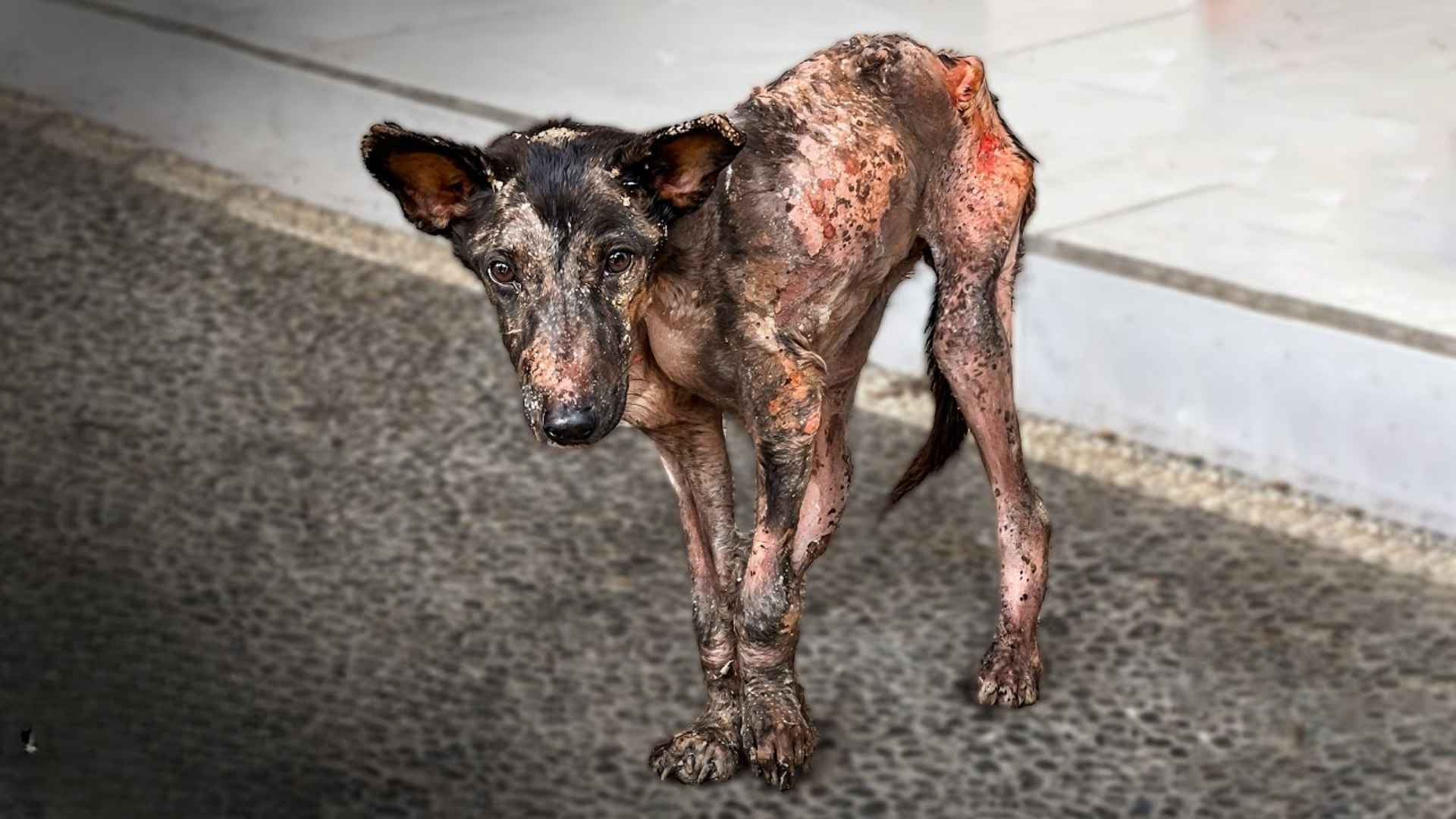Kibo wandered the streets, a ghost of a dog. His thin body limped painfully, his front leg twisted at an awful angle. The bone was exposed, raw, and broken. His wounds, deep and neglected, told the story of the lonely days he had spent on his own. He was starving, weak, and forgotten by the world. Cars drove past, people ignored him—but then, a soft voice called out.
The rescuers didn’t rush at him. There was no shouting, no quick movements. Just quiet compassion, a little food, and an open hand. Kibo didn’t run. He couldn’t. His body had endured too much. He simply watched, uncertain, as if he wanted to trust but had forgotten how. When they knelt beside him, he sniffed the food they offered and ate, not with urgency, but with a quiet acceptance. It was as if he knew, deep down, that he was being helped, not hunted.
Carefully, the team wrapped his injured leg, lifting him gently into a blue rescue cage. The way they moved was slow, as if every step might break him further. But Kibo didn’t fight them. He just leaned in, trusting what he could, because inside him, somewhere, hope still flickered.
At the clinic, everything changed. The team worked fast but with tenderness, cleaning his wounds and starting treatment on his broken leg. His eyes were dull, his body fragile, but there was a spark—his chest rose and fell with shallow breaths, but for the first time in what felt like forever, Kibo wasn’t in danger. He was safe. And for the first time, he was cared for. “You’re not alone anymore,” one rescuer whispered as they fed him, making sure he knew he mattered.
His body was so thin, and his veins were inflamed. But they didn’t give up on him. They gave him fluids and kept him warm. Little by little, Kibo began to respond. A flicker of life returned in his tail. His eyes started to show some strength. He struggled to stand, his legs shaky, but he tried. It was a slow process, but every tiny step forward was a victory.
The road ahead would be long. His leg would need time to heal, and his heart needed time to trust again, but Kibo was no longer alone in the world. He was safe, and that made all the difference.
As the days went on, the healing continued. Each hour brought more life into him. The tail that once barely moved now wagged slightly. His eyes became brighter. And when he finally lay down to sleep, for the first time in who knows how long, he wasn’t hungry. He wasn’t cold. He wasn’t alone.
Kibo’s story wasn’t just about a broken dog being fixed—it was about love, patience, and second chances. He had been left to suffer, but now, he was on the path to recovery. His journey was far from over, but with every bit of care, every sign of healing, he knew—he was no longer wandering the streets. He was home.


